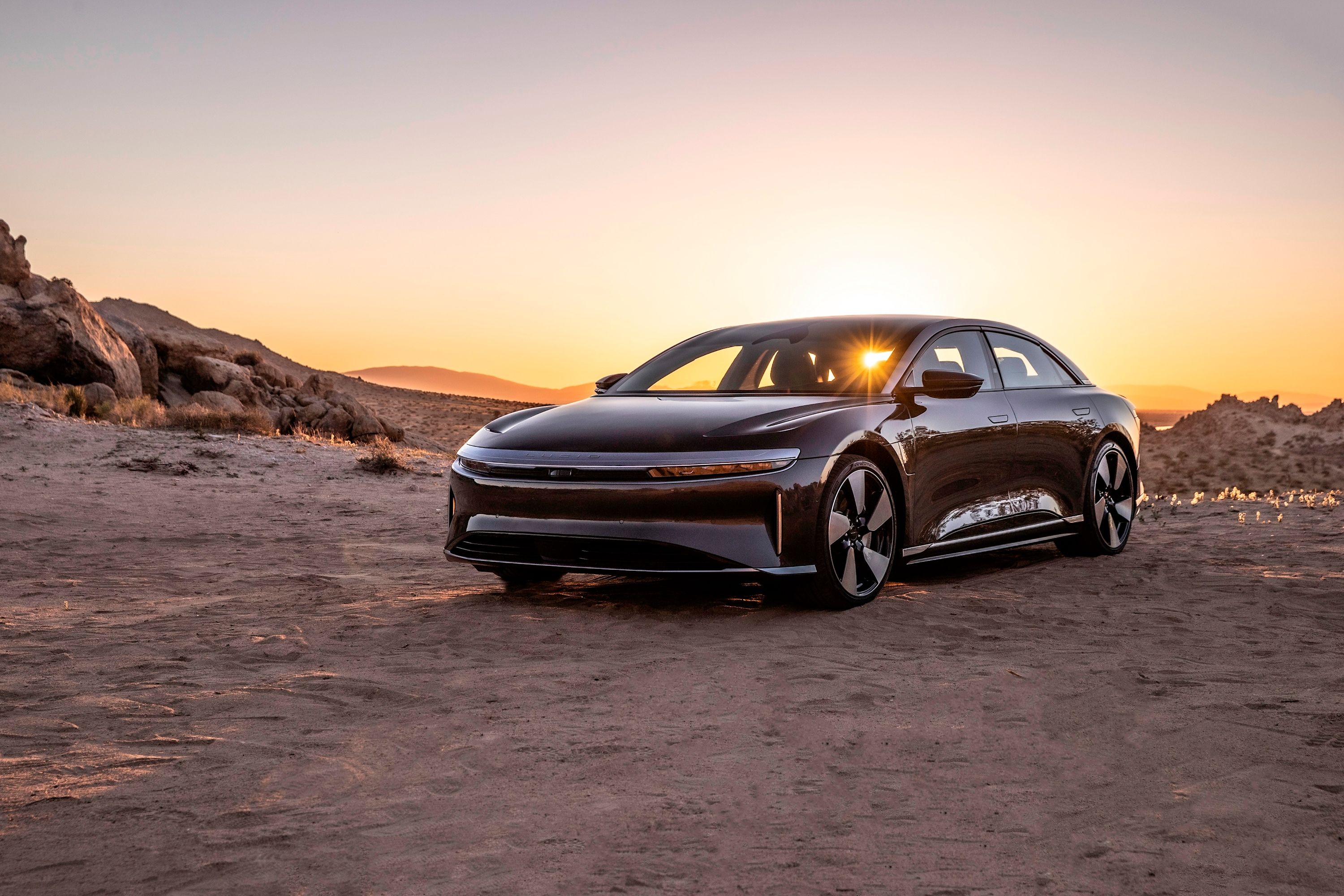
The luxurious Lucid Air may be a silently rapid electric vehicle, but it's also one of the most environmentally responsible vehicles on the market. According to a recent study, the plush EV comes out on top. Out of a possible 100 points, the Air Dream Edition Range scored 71.1 points, placing it higher than any other EV in terms of efficiency and eco-friendliness.
And that comes as no surprise. With an EPA-estimated range of 520 miles, the Dream Edition Range has the biggest travel range of any battery-powered vehicle in the United States. Thanks to a rather impressive charging setup called the 'Wunderbox,' it's also able to glean power at an astonishingly quick rate.
In the latest installment of Lucid's Tech Talks series, Eric Bach does a deep dive into the Wunderbox - described as the "heart of the world's most advanced and compatible" charging system - and explains how this large and heavy sedan can charge at the rate it does.
The Wunderbox is responsible for managing power flowing to and from the battery and also for the Air's charging at varying stations. Of course, the luxury EV can be plugged into several types of chargers but it's the fast-charging abilities that impress the most. At a fast-charging station, the Air can "charge at above 300 kW at peak, achieving really fast charge times."
Independent testing has shown the EV is capable of adding 416 miles of range in just 37 minutes. This makes the Air a highly convenient prospect for long-distance driving. "Charging speed is not just about the kilowatts we can draw from the grid and push into the car," he adds.
The chief engineer says it's more important to look at how quickly range can be added. It's all about efficiency, says Bach. "If we can double the efficiency of the consumption of the energy, we can double the range that the vehicle can drive with that given energy."
On a trip from San Francisco to San Diego, the luxury sedan will spew less than 66 lbs of carbon dioxide. A similarly priced, ICE-powered luxury vehicle would pollute significantly more; at nearly 400 lbs of CO2. The total travel costs for the Lucid would be around $30; a gas-powered rival would require more than $100 of fuel. "If you had used the solar power to charge the Lucid Air, you would have not generated any carbon emissions."
The Wunderbox deserves another mention; it's a particularly clever piece of design. "Inside, [the] power board has the switching devices and magnetics. The control board is the brain of the Wunderbox [and] manages the DC fast-charging [and more]." The structural die-cast housing not only stiffens the chassis but improves crash performance and refinement too.
If you're interested to learn more about Lucid's intelligent charging setup, the informative video is well worth a watch. It's no surprise the large Mercedes EQS rival is more efficient than far smaller EVs.
